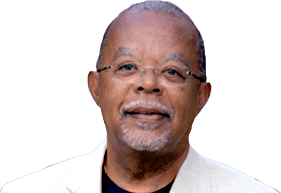Francesca Cergol
Dear Mr. Gates,
Me and my class watched the documentary “Many rivers to cross” that you helped to make. I really think it was great because you didn’t just say what happened to African americans 500 years ago, but you went to the places where it happened and talked to other people who had knowledge about what happened, too. Also all of the data that you found (Videos, pictures, etc.) made the documentary unforgettable.
When you were the host in the documentary, I really felt like i was in it. You really explained 500 years of black history smoothly and understandibly. That part of why it was such a good film.
I really liked the actual content in the film because of all the pictures, artwork, and videos. I really liked that you didn’t just explain what happened, but you showed it. The film also had a lot of detail. The people that you had interviews with had a lot of things to say. I noticed that a large variety of the people that you had interviews with were dark colored, And I liked that because they would probably know more about black history. The film had detail also because of the places that you went. You and your camera men flew all over the world to places that had to do with black history the most. I remember you went to africa at the beginning of the film, too. It must have been tiring, having to fly almost everywhere.
There was also detail in what you talked about. Booker T. Washington, Selma, reconstruction, and so much more! All these little small parts had so much detail! That made those small parts important. They are important, and you brought that out.
My favorite part in the film is when you talked about the slave Trying to escape to the north from the south, and ended up killing her children. That was so sad! she didn’t even get a trial because she was thought “unhuman”! That was an amazing yet gruesome story you found.
Personally, I think every fifth-grader and up all around the world should see your documentary. Some children are taught wrong things and some teachers lie about what happened to african americans 500 hundred years ago. If everyone watched “Many Rivers To Cross”, though, They would know the real truth about how bad blacks were treated. Your documentary would make people think differently, like it made me and my classmates think differently. It would make the world think differently.
I learned so much from “ Many Rivers To Cross”. For example, I thought the Emancipation Proclamation, But really it did almost nothing. I also didn’t know that African Americans invented jazz. that was a cool thing to know. So the documentary was very educational.
One more thing I really liked about your documentary is that you told the story from start to finish. What I mean is that some documentaries have only parts of what happened. They might just tell what happened up to the civil war and then stop. Or they might just tell from the 1960’s and up. But in your documentary, it even tells before the europeans found the africans! You told how the africans enslaved there own people and so on. You told every little thing that happened and didn’t skip parts. You told from Africa to obama, stopping only change from episode to episode. An average documentry would only be 1 to 2 hours, would fly by important information, and didn’t keep you engaged for long. But your documentary kept us engaged and it was… 6 HOURS!!! My class wouldn’t want to stop watching! Your documentary wasn’t average, but amazing.
Sincerely,
Francesca Cergol




